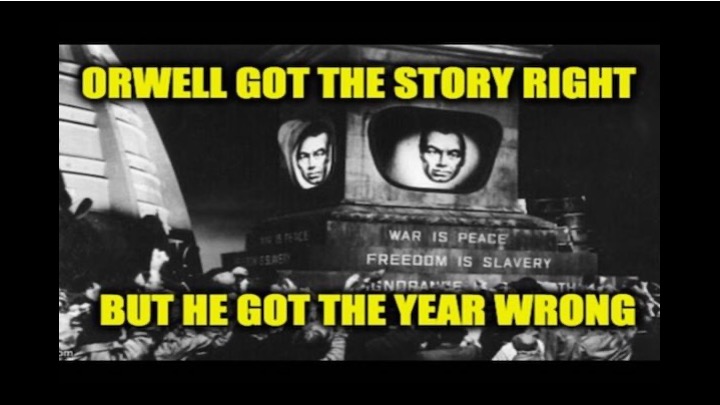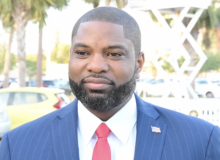US District Judge Terry Doughty of the United States District Court for the Western District of Louisiana has slapped a nationwide injunction on the White House, federal government departments, and agencies, including the Department of Homeland Security’s Cybersecurity and Infrastructure Security Agency, the State Department’s Global Engagement Center and the Justice Department’s FBI Foreign Influence Task Force from coordinating with and pressuring social media companies including Facebook, Twitter, Google, and YouTube to remove political speech from their platforms that opposed tyrannical government policies during Covid, including lockdowns, vaccine and mask mandates, opposition to the outcome of the 2020 election, exposed the Hunter Biden laptop story and any future efforts to squelch speech, calling the activities “the most massive attack against free speech in United States’ history….”
According to Doughty, in granting the injunctive relief, “The Plaintiffs are likely to succeed on the merits in establishing that the government has used its power to silence the opposition. Opposition to COVID-19 vaccines; opposition to COVID-19 masking and lockdowns; opposition to the lab-leak theory of COVID-19; opposition to the validity of the 2020 election; opposition to President Biden’s policies; statements that the Hunter Biden laptop story was true; and opposition to policies of the government officials in power. All were suppressed.”
The suppressed speech almost exclusively came from political opponents of the Biden administration, pointing to a targeted campaign of “viewpoint discrimination”: “It is quite telling that each example or category of suppressed speech was conservative. This targeted suppression of conservative ideas is a perfect example of viewpoint discrimination of political speech. American citizens have the right to freely debate the significant issues affecting the country.”
And Doughty called the actions, which began before Biden even took office, an Orwellian “Ministry of Truth” from George Orwell’s warning of totalitarian censorship in his book 1984: “Although this case is still relatively young, and at this stage, the Court is only examining it in terms of Plaintiffs’ likelihood of success on the merits, the evidence produced thus far depicts an almost dystopian scenario. During the COVID-19 pandemic, perhaps best characterized by widespread doubt and uncertainty, the United States Government seems to have assumed a role similar to an Orwellian ‘Ministry of Truth.’ The Plaintiffs have presented substantial evidence supporting their claims that they were the victims of a far-reaching and widespread censorship campaign. This Court finds that they will likely succeed on the merits of their First Amendment free speech claim against the Defendants. Therefore, a preliminary injunction should issue immediately against the Defendants as set out herein.”
As for the expansive injunction, it just about covers all the bases of the activities in evidence at the trial. It forbids the government from: “(1) meeting with social-media companies for the purpose of urging, encouraging, pressuring, or inducing in any manner the removal, deletion, suppression, or reduction of content containing protected free speech posted on social-media platforms; (2) specifically flagging content or posts on social-media platforms and/or forwarding such to social-media companies urging, encouraging, pressuring, or inducing in any manner for removal, deletion, suppression, or reduction of content containing protected free speech; (3) urging, encouraging, pressuring, or inducing in any manner social-media companies to change their guidelines for removing, deleting, suppressing, or reducing content containing protected free speech; (4) emailing, calling, sending letters, texting, or engaging in any communication of any kind with social-media companies urging, encouraging, pressuring, or inducing in any manner for removal, deletion, suppression, or reduction of content containing protected free speech; (5) collaborating, coordinating, partnering, switchboarding, and/or jointly working with the Election Integrity Partnership, the Virality Project, the Stanford Internet Observatory, or any like project or group for the purpose of urging, encouraging, pressuring, or inducing in any manner removal, deletion, suppression, or reduction of content posted with social-media companies containing protected free speech; (6) threatening, pressuring, or coercing social-media companies in any manner to remove, delete, suppress, or reduce posted content of postings containing protected free speech; (7) taking any action such as urging, encouraging, pressuring, or inducing in any manner social-media companies to remove, delete, suppress, or reduce posted content protected by the Free Speech Clause of the First Amendment to the United States Constitution; (8) following up with social-media companies to determine whether the social-media companies removed, deleted, suppressed, or reduced previous social-media postings containing protected free speech; (9) requesting content reports from social-media companies detailing actions taken to remove, delete, suppress, or reduce content containing protected free speech; and (10) notifying social-media companies to Be on The Lookout (‘BOLO’) for postings containing protected free speech.”
The injunction effectively shuts down government efforts to coordinate and act in concert with social media in removing content. Presumably, if the plaintiffs are successful, a full trial would find that the activities outlined violated the First Amendment to the Constitution’s protection against abridgment of free speech, but what about the policies and laws that made the censorship regime possible? Those are not mentioned in the injunction.
Congress should be a defendant in this case, by all rights.
The censorship in part, was authorized by Congress in 2018 when Republicans controlled the House led by former House Speaker Paul Ryan (R-Wis.), the Senate led by then-Majority Leader Mitch McConnell (R-Ky.) after Republicans had lost control of the House but before Nancy Pelosi was brought back in as Speaker. Congress unanimously passed legislation in the closing days of the Republican-controlled House on unanimous consent, HR 3359, that authorizes the Secretary of Homeland Security and the newly created Cybersecurity and Infrastructure Security Agency (CISA), to disseminate information to the private sector, including Big Tech social media companies in a bid to combat potential foreign and domestic terrorists.
The law authorizes CISA to “To access, receive, and analyze law enforcement information, intelligence information, and other information from agencies of the Federal Government, State and local government agencies (including law enforcement agencies), and private sector entities, and to integrate such information, in support of the mission responsibilities of the Department and the functions of the National Counterterrorism Center established under section 119 of the National Security Act of 1947 [50 USC 3056], to… identify and assess the nature and scope of terrorist threats to the homeland;…detect and identify threats of terrorism against the United States; and … understand such threats in light of actual and potential vulnerabilities of the homeland.”
The law also allows CISA to “disseminate, as appropriate, information analyzed by the Department within the Department, to other agencies of the Federal Government with responsibilities relating to homeland security, and to agencies of State and local governments and private sector entities with such responsibilities to assist in the deterrence, prevention, preemption of, or response to, terrorist attacks against the United States.”
With that authority, CISA says it “rout[es] disinformation concerns” to “appropriate social media platforms”: “The [Mis, Dis, Malinformation] MDM team serves as a switchboard for routing disinformation concerns to appropriate social media platforms and law enforcement,” according to the agency’s website.
This has happened since 2018: “This activity began in 2018, supporting state and local election officials to mitigate disinformation about the time, place, and manner of voting.” And it was expanded in 2020: “For the 2020 election, CISA expanded the breadth of reporting to include other state and local officials and more social media platforms.” During the pandemic, CISA also targeted Covid “disinformation” too: “COVID-19…create[d] opportunities for adversaries to act maliciously. The MDM team supports…private sector partners’ COVID-19 response…via regular reporting and analysis of key pandemic-related MDM trends.”
The agency bragged about its “rapport” with Big Tech firms in censoring speech. Hence, they’re on the same page: “This activity leverages the rapport the MDM team has with the social media platforms to enable shared situational awareness.”
In March, CISA scrubbed these pages to conceal its blatant censorship activities, but they have been preserved by web.archive.org. Here is CISA’s Feb. 20, 2023, MDM page at http://web.archive.org/web/20230220065334/cisa.gov/mdm. Similarly, CISA’s election security page at https://www.cisa.gov/election-security has been scrubbed from its earlier iteration. An archived page version from Feb. 20, 2023, is still available at http://web.archive.org/web/20230220031118/https://www.cisa.gov/election-security. So too, has its so-called Rumor Control page at https://www.cisa.gov/rumorcontrol been changed, which can still be found at http://web.archive.org/web/20230220062536/https://www.cisa.gov/rumorcontrol.
In addition to the CISA authorizing statute, the 2018 through 2020 National Defense Authorization Acts include extensive provisions allowing the government to target what it calls “foreign malign influence” by Russia and other countries.
The purpose of the legislation is not merely to counter foreign influence but to counter domestic political speech on these topics. Under the law, just label wrongthink as Russian disinformation; there’s no limit to what can be suppressed.
More of the very prominent role that laws and regulations enacted by Congress and the executive branch play in this censorship regime may come out at the trial, but it might not either.
These sections of the law are not mentioned in the injunction, which just as quickly could have been placed to stop the execution of those laws. Plaintiffs might yet need to argue against these and other provisions of law even if the government defendants don’t point to any specific statutes or authorizations for their activities, or else the American people might find themselves being silenced once again under these provisions of law if left untouched by the Court’s ultimate decision.
But Congress also has a role to play here, just as they did in authorizing much of the censorship. It can repeal these authorizations to coordinate with the private sector under CISA and further repeal any authorizations the Defense Department, the State Department including the Global Engagement Center, the Justice Department, the FBI’s Foreign Influence Task Force, the Department of Homeland Security, including CISA.
Just take Doughty’s injunction and formulate it into legislation. He already wrote it for you. And repeal or else significantly limit the scope of the other provisions of law that allowed for communications to the private sector.
There has been some action. HR 140 creates an additional prohibition against censorship by federal employees on interactive computer services under Section 230 of the Communications Decency Act: “An employee may not… use the employee’s official authority to censor any private entity….” An amendment by US Rep. Dan Bishop (R-N.C.) to the bill clarified it did not apply to instances of “unlawful” speech such as child pornography: “Nothing in this section shall be construed to prohibit an employee from engaging in lawful actions against unlawful speech within the official authority of such employee to exercise legitimate law enforcement functions.”
But this is not precisely a catch-all provision. The government has repeatedly proven that it cannot distinguish between political speech and “foreign malign influence” on US soil. It also apparently cannot tell the difference between constitutional political speech and “unlawful” speech unless specifically defined for them. On the other hand, explicitly defining specific types of speech as unlawful might similarly run afoul of the First Amendment. Instead, Congress should focus on prohibiting government coordination with private actors where Americans express their political opinions, including social media, and provide additional protection of that speech as a civil right.
Congress should facilitate the marketplace of ideas, not authorize the executive branch to interfere or shut it down.
According to the lawsuit, targeting speech is the most imprecise method of countering foreign actors and has already netted false positives in the millions. To get to the heart of it, Congress must stop authorizing it on US soil and repeal any laws that allow it to be targeted on social media, at newspapers, websites, or organizations. This is a massive influence operation by the government to control public opinion and to punish political opposition. Congress should be safeguarding against it rather than acting as a willing accomplice by ignoring the laws it passed that allow it and thus the vital role it has and continues to play in silencing regular Americans.
In the 2018 NDAA, under Sec. 1239A it authorizes the censorship: “The Secretary of Defense and the Secretary of State, in coordination with the appropriate United States Government officials, shall jointly develop a comprehensive strategy to counter the threat of malign influence” including “the use of misinformation, disinformation, and propaganda in social and traditional media” and “Efforts to work with traditional and social media providers to attribute and counter the threat of malign influence….”
In this case, the malign influence would be by Russia, but the way it’s written, if an individual, journalist, newspaper, organization, candidate, or campaign were to even question the current US role in Ukraine, for example, or if they were saying Russiagate was made-up BS by the federal government to falsely label former President Trump as a Russian agent, or if they were opposing the impeachment in 2019, or were saying that the Hunter Biden laptop story was not Russian disinformation, etc. that it would have almost certainly been considered “malign” under the very expansive provisions.
Crossposted With Conservative Firing Line






